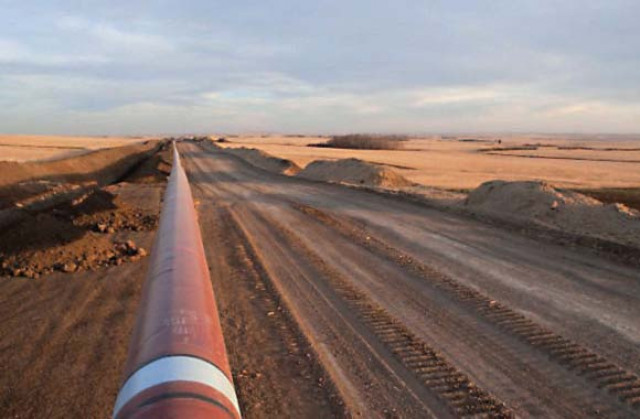TAPI gas pipeline: Turkmenistan says no to a raw deal
Ashgabat wants the same pricing formula that Iran gets for its gas exports.

Turkmenistan has rejected the gas pricing formula proposed by its prospective buyers in the Turkmenistan-Afghanistan-Pakistan-India (TAPI) pipeline project, a blow to the US-backed project that Washington had been pushing Islamabad to accept as an alternative to the gas pipeline from Iran.
In a meeting held on May 17 and 18 earlier this year, Kabul and New Delhi had accepted Islamabad’s suggestion that the three buyers collectively propose a gas-pricing formula based on Turkmenistan’s cost of production, rather than being linked to the price of oil, which is the standard global practise.
Pakistan’s formula would restrict Turkmenistan to a fixed profit margin, rather than the variable rate that is usually offered to countries exporting gas. Pakistan has signed an agreement with Iran that would link the gas import price to the international price of oil.
Sources told The Express Tribune that technical teams from the four countries, in a recent meeting of the Technical Working Group held in the Turkmen capital of Ashgabat, had set October 15 as the deadline to finalise pricing details and sign the gas sales purchase agreement.
The deadline had earlier been set to July 31 but was extended when the four countries could not agree. Sources said that the buyer countries may make some concessions to Turkmenistan, including perhaps linking it to the global price of crude oil. The price of Iran’s gas exports to Pakistan are 78% based on the global price of oil.
“The four countries are expected to link the gas price with some percentage of the world crude oil,” sources said.
While no agreement appears to have yet been reached, sources familiar with the negotiations remain hopeful that the deadline for an accord will be met.
“The technical teams of all stakeholder countries have to conclude price of gas to import from Turkmenistan under TAPI gas pipeline project within ten days,” sources said adding that “We are hopeful that GSPA will be signed by October 15 to move forward on gas import project.”
In a bid to economically isolate Tehran, Washington has been pushing Islamabad to accept the TAPI project as an alternative to the Iran pipeline, going so far as to threaten sanctions if Pakistan does not comply.
Published in The Express Tribune, September 25th, 2011.



















COMMENTS
Comments are moderated and generally will be posted if they are on-topic and not abusive.
For more information, please see our Comments FAQ